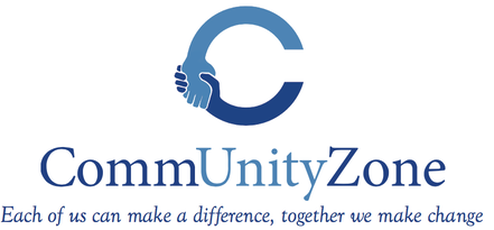|
Keri L. Albright, President & CEO of Greater Susquehanna Valley United Way and Juli Corrigan, former Director of Outreach and Community Education at the CSIU, delivered a dynamic, sobering lecture on poverty both nationally and locally, to a large number of residents and league followers on Tuesday, November 18th.
Ms. Albright began by sharing with us the genesis of how the United Way began its intentional focus on poverty in 2005 by convincing the past board that the United Way was not affecting social change like they had hoped. After a two-year process of conducting community wide research on the root causes of many social problems in our society, it was agreed at the time that nobody else was working on these social problems on a large scale, and that the United Way could with all its resources tackle these social problems. United Way then changed their approach and instituted what is now referred to as the Priorities for Impact. As many of you may know, the United Way is now set up with six councils of volunteers from a variety of social agencies to tackle the root causes of social problems in Northumberland, Snyder and Union Counties. The six councils are: Drug & Alcohol Abuse and Addiction, Poverty, Transportation, At-risk Teens, Quality Early Childhood Education and Acceptance and Understanding Diversity. Ms. Albright went on to share several wrenching and heartwarming stories of people she has met that deal with poverty on a daily basis. She also shared some striking numbers with the audience, including over 60,000 men, woman and children in Northumberland, Snyder and Union counties struggle at the extremes to afford the very basics and that the fastest and most likely way to be thrust into poverty is to be born there. Almost 8% of children in Pennsylvania are born into extreme poverty. While there are a multitude of reasons for poverty in addition to being born into it, some of the other causes are a lack of education, divorce, a lack of job opportunity and the high cost of healthcare. Ms. Corrigan followed with some glaring and disturbing history and statistics on Poverty in America. She rightly pointed us to some good news about why we have made some progress since we declared the War on Poverty. The enactment of Social Security, Medicare and the importance of voting have helped many. She also shared with us how the government measures poverty. Clearly, the official poverty measure is way below what people actually need to survive. The second, and not so well known measure is the supplemental poverty measure which includes the basics of keeping families fed and warm, and finally the Living Wage, which is what individuals need to not only survive but thrive in our society. Ms. Corrigan shared with the audience many slides of what counts as poverty. According to 2014 guidelines:
And for those who are not aware, the difference between minimum wage, poverty wage and living wage is as follows:
And finally, Ms. Corrigan focused on the dangerous path our elderly are facing. Nine out of ten 65 and older receive Social Security and 38% of that income is what they use to live on. The out of pocket expenses of the elderly that Medicare does not cover is herculean. According to a 2007 study:
We can only imagine the magnitude of increase that is present today.While what we learned in the presentation was disturbing and appalling, we were also left with some possible solutions.
In closing, I share some words of wisdom from Martin Luther King: “I ask of you, and of myself, is that we constantly interrogate our own complicity with excess, that we always remain vigilant to notions of community that might, perhaps against our best intentions, sometimes, embrace a system of domination at the expense of others. Can we radically submit ourselves to the pursuit of equality and justice for all? If we choose to call ourselves Asian American, can we not also choose to be that kind of American that refuses to accept what America has been, and instead help build a better America even for others, who might not immediately seem to “belong” to us?In the end, whom do we mean by “us”? For me, if I choose to belong to a coalition, a community, an “us,” it must mean, we who remember the past; we who care about the future; we who are compassionate, generous, patient, and committed deeply to the welfare of others; we who agree that naming ourselves as an “us” is not an end, but a beginning.” Additional Resources: Elder Economic Security Standard (“Elder Index”) http://www.basiceconomicsecurity.org/gateway.aspx (need to create a username and password to access local data) Social Security Basic Facts http://www.ssa.gov/news/press/basicfact.html Poverty Rates in PA http://www.ers.usda.gov/Data/povertyrates/#.VGjgm_nF-So Wage Comparison for Union County http://livingwage.mit.edu/counties/42119 Poverty Rates for Children and the Elderly http://www.pewresearch.org/fact-tank/2014/01/13/whos-poor-in-america-50-years-into-the-war-on-poverty-a-data-portrait/ State-by-State Snapshot of Poverty Among Seniors: Findings from Analysis of the Supplemental Poverty Measure http://kff.org/medicare/issue-brief/a-state-by-state-snapshot-of-poverty-among-seniors/ How is Poverty Measured in the United States? http://www.irp.wisc.edu/faqs/faq2.htm 2014 Poverty Guidelines http://aspe.hhs.gov/poverty/14poverty.cfm How Does Bankruptcy Law Impact the Elderly’s Business and Housing Decisions? http://www.personal.kent.edu/~srohlin/docs/Bankruptcy-NGS-SMR-Publication.pdf How Much Is Enough? Out-of-Pocket Spending Among Medicare Beneficiaries: A Chartbook http://kff.org/health-costs/report/how-much-is-enough-out-of-pocket-spending-among-medicare-beneficiaries-a-chartbook/ Seniors Intervention Group Slide 16 http://seniorsinterventiongroup.org/who-we-are Beyond Poverty: Preliminary Findings from the 2013-2014 Empowering Opportunities: Gateways Out of Poverty Initiative http://www.pahousegop.info/docs/Reed/beyondpovertyreport2014/index.html
0 Comments
Leave a Reply. |
Authorship
The CommUnity Zone blog features stories and updates from all the team members and other locals. Archives
May 2024
Categories |
Location |
|

 RSS Feed
RSS Feed
